Alumni
Our alumni work in a wide range of fields around the world. The sample below showcases some of the Anthropology alumni who have drawn on skills developed at Tufts to find new solutions and tools for human questions and problems. Their experiences show that innovation and social entrepreneurship—qualities in high demand around the working world—are nothing new for graduates of our program.
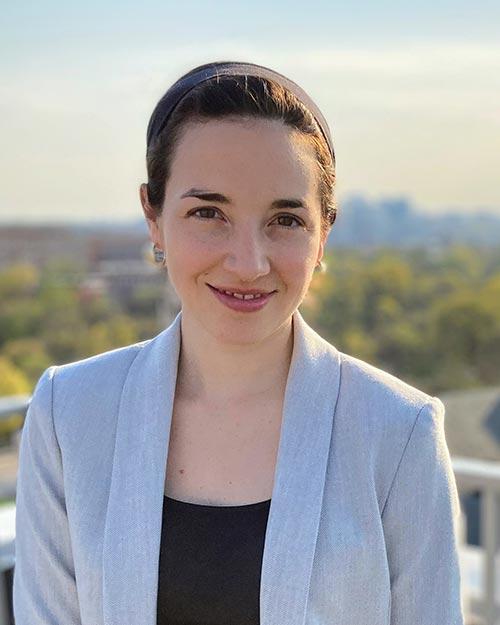
Diane Adamson
Graduating Class: 2015
Current Position: Legislative Assistant for U.S. Congressman Jamie Raskin of Maryland
What memorable Tufts Anthropology experience do you continue to take with you?
I had the opportunity to write an anthropology thesis and do fieldwork at a market in Quito, Ecuador. It was a chance to dive deeply into a topic I was passionate about, improve my interview skills, and overall grow more confident in developing and sharing my own ideas. I also got to know some interesting, funny and welcoming women who worked at the market.
You didn’t ask this exactly, but – studying anthropology at Tufts was extremely fun! I actively enjoyed nearly all of my classes. I am so grateful for the experience.
What did you do right after graduation (and how did anthropology help to set you on that path)?
I wasn’t sure what I wanted to do after graduation except live near my now-husband, who had accepted a job in Wisconsin. I ended up working in health care software at a Madison-based company and had the chance to travel all around the country, learn about our wild health care system, and build transferable professional skills like how to run an efficient meeting, how to help busy people make complex decisions, and how to shake a hand. Also, Madison is awesome! My experience in the Tufts anthropology department was so helpful as I was interviewing for that first job – I had to give a presentation as part of the interview day and ended up doing a “mini-ethnography” of the built environment of the conference room we were sitting in. Turns out the design of the conference room showed us the company was extremely innovative and had a wonderful culture…
What are you doing now in terms of work, service, or other salient experiences? Does anthropology remain influential in what you do or how you do it?
Today I work for U.S. Congressman Jamie Raskin of Maryland, who represents my hometown. I’m his Legislative Assistant covering the Rules Committee (which I promise is actually very fun), health care policy, and some other domestic issues. A big focus of my work is supporting Rep. Raskin’s policy efforts to address the mental health struggles that many Americans, and especially our young people, are facing.
When I was attempting to transition from health tech to health policy, the writing skills I developed as an anthropology student at Tufts were indispensable. The anthropology classes are often small, and the professors are so excellent and devoted -- you really can’t sneak sloppy thinking by them in your papers. They pushed me towards clear thinking and clear writing. When I was trying to break into Capitol Hill, I was able to overcome the fact that I didn’t have the ideal internships or work experience by being a good writer.
I still think like an anthropologist every day – working in Congress is all about observing and participating in obscure rituals, complex kinship networks, and power structures. I’m still learning it all, but that’s an anthropology class I’d love to teach someday.
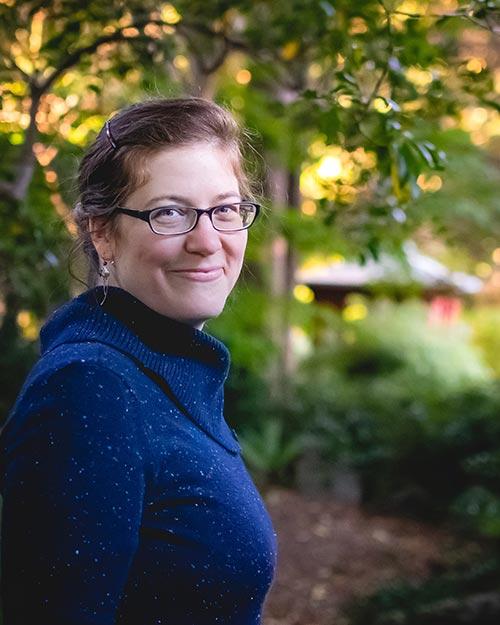
Vera Belitsky
Graduating Class: 2007
Current Position: Primary Care Nurse Practitioner
What memorable Tufts Anthropology experience do you continue to take with you?
So much of my anthropology training at Tufts has stayed with me that it’s hard to distill the impact to one class or experience. I carry with me Professor Sarah Pinto’s medical anthropology teaching on how interactions between government systems and individuals are inscribed onto bodies and health… Professor Stephen Bailey’s classes on the anthropology of food and of the body… and Professor Rosalind Shaw’s West Medford Oral History Project. I learned to be attuned to power dynamics, look beyond preconceived notions, and consider how to work towards human rights and justice in all of my efforts.
What did you do right after graduation (and how did anthropology help to set you on that path)?
After graduating from Tufts, I spent a year in Latvia as part of the Fulbright Program to collect oral histories on people’s experiences with treatment for multidrug-resistant tuberculosis (MDR-TB). I researched barriers affecting people's ability to adhere to MDR-TB treatment, a multi-month difficult regimen typically completed through daily monitoring by a nurse. Non-adherence contributes to treatment failure and potentially death, as well as drives worsening multidrug-resistant strains of TB. When I got back from Latvia to Boston, I worked for Partners In Health, a global health non-profit, supporting MDR-TB projects. After that, I decided that I felt most passionate about impacting health by working with people directly and pursued training to become a nurse practitioner.
What are you doing now in terms of work, service, or other salient experiences? Does anthropology remain influential in what you do or how you do it?
I am now honored to work with individuals with disabilities as a home-based primary care nurse practitioner. I think about the lived experience of physical and mental disability, how to create new systems of care delivery to support independence and self-determination, and how to provide anti-racist medical care. My anthropology training continues to inform my ability to ask deep questions and think about systems. One day I might pursue more medical anthropology studies to think about these questions in a deeper way and hopefully find answers that move the scale towards greater disability rights and racial justice.
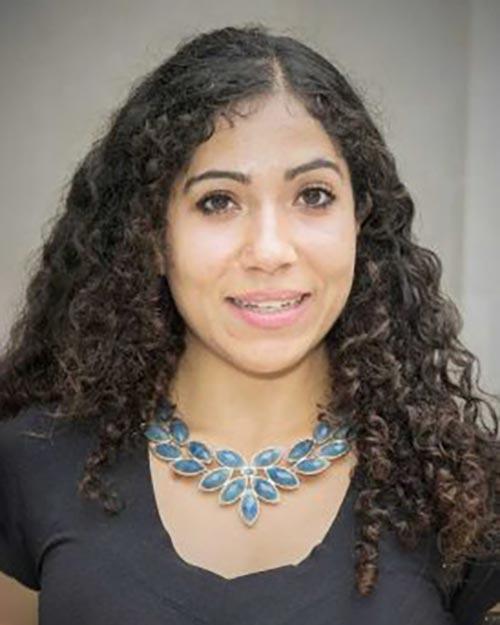
Andrea Bolivar
Graduating Class: 2010
Current Position: Assistant Professor, Department of Women’s and Gender Studies, University of Michigan
What memorable Tufts Anthropology experience do you continue to take with you?
Gosh, so many experiences were formative to me as an anthropologist and a person! Taking Anthropological Theory with Professor Pinto during my junior year was life-changing. The course provided me with the language to describe intersecting systems of oppression in my own life, and in the lives of the people that I love. Being able to articulate and analyze such systems felt—and was—liberating for me. This was when I knew I wanted to be a professor, so that I could dedicate my life to encouraging others to think more critically about the world around them, in order to make meaningful change. I will always cherish my time spent with the Anthropology Club (I may have started it?), and as a work-study student. I felt so supported and nourished not only by the professors in the department, but also staff such as Lynn Wiles. Also, I will never forget participating in Honk Fest with Professor David Guss.
What did you do right after graduation (and how did anthropology help to set you on that path)?
After graduating in 2010, I was accepted into the Institute for the Recruitment of Teachers (IRT), an incredible program that seeks to diversify education and support marginalized folks in becoming educators. Through IRT, I applied to graduate school, and was accepted into the PhD program in Anthropology at Washington University in St. Louis. My undergraduate training in anthropology at Tufts University prepared me for graduate study at WashU. I graduated from WashU in 2018.
What are you doing now in terms of work, service, or other salient experiences? Does anthropology remain influential in what you do or how you do it?
I am currently an Assistant Professor in the department of Women’s and Gender Studies at the University of Michigan. My research ethnographically examines the experiences of sex working transgender Latinas in Chicago. In both my writing and teaching, I am committed to challenging stereotypes about sex working trans women of color, and showing not only how they defy white cis-supremacy, but also transnormativity and normative Latinidad. More broadly, I am committed to fighting racist-cisgenderism in all of its manifestations. These commitments were born in the Anthropology Department at Tufts University.
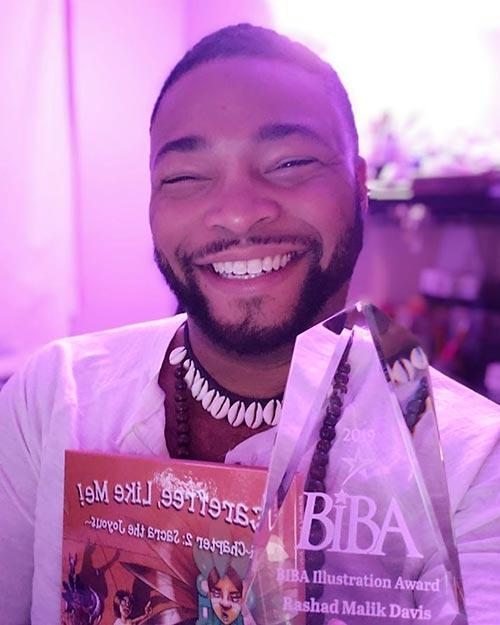
Rashad Davis
Graduating Class: 2013
Current Position: Illustrator, author, and educator
What memorable Tufts Anthropology experience do you continue to take with you?
This is a tough one, but there are two. Professor David Guss had brought in a blow dart from his time in Brazil. It was massive, and he asked for volunteers to see who could hit balloons on the wall. A few students went up, but none could do it. I stood up and not only shot it - I was also the only one to successfully hit the balloon! It's a weird thing to be proud of, but I loved it. The other was taking a fascinating class with Professor Stanton, and I came up with a topic that I was really excited about. I managed to find a book authored by this brilliant researcher who had come up with the exact same thesis years ago. It definitely was an ego boost, and made my life much easier.
What did you do right after graduation (and how did anthropology help to set you on that path)?
I'm an illustrator/author and educator. However, I floundered around after graduation for some time trying to find myself. (If anyone is confused about what to do, don't worry. Most people don’t know what they’ll be at 20!) Immediately after graduating, I worked at a Lifetouch Photography taking photos for families, babies, and children and loved it. I realized I had a passion for working with children, but I still didn't know what to do. I left that job and went to work in a variety of odd jobs. But then hit me. I could combine all my interests. My love for people and how to navigate culture cultivated by anthropology. My love for working with young people. And my love for the arts. It all coalesced into a career as an illustrator, author, and educator who works primarily with children and uses fantasy and mythology to tell stories.
What are you doing now in terms of work, service, or other salient experiences? Does anthropology remain influential in what you do or how you do it?
When I told my mother I wanted to study anthropology, her eye twitched a little and she said, "So what are you gonna do? Dig up bones?" Though I do not have the pleasure of digging up long dead things now, anthropology has loomed large over my work. I'm an illustrator and author with a focus on mythology, fantasy, and folklore. Besides literally taking a class called Myth, Ritual, and Symbol with my then advisor Prof. David Guss, I learned how to look at systems. Anthropology taught me how to look at the bigger picture to understand how humans make sense of ourselves and our world. I'm applying this daily to my work as a creative with the specific projects I touch. I am forever grateful to Tufts Anthropology and the incredible educators I met, and I know that I would not be me without them.
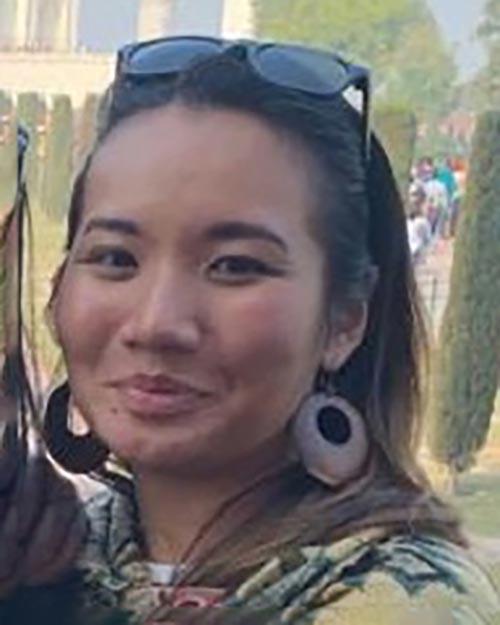
Alison Kuah
Graduating Class: 2017
Current Position: PhD student in Social Anthropology, University of Cape Town
What memorable Tufts Anthropology experience do you continue to take with you?
My favourite Tufts Anthropology experience is still my first-ever anthropology course in the department with Dr. Thomas Abowd in Popular Cultures of the Middle East. I remember having been curious about anthropology since high school and finally diving into a class that I didn’t have any context of (there were some Middle Eastern Studies majors in that class), any disciplinary knowledge of (I wasn’t yet an anthropology student) and where I was the only first-year. Dr Abowd exposed us to such interesting content and I found myself doing all the extra-curricular and optional activities out of interest. I started analysing popular culture and beyond everywhere I went. Some of the movies and music videos we watched in the class are still on my Netflix and my Spotify today.
What did you do right after graduation (and how did anthropology help to set you on that path)?
After graduation, or really before graduation, I started working with an immigrant organization in Somerville. The Welcome Project really touched many Tufts students over the years and I was no exception. I always loved the “practical” side of anthropology, how the subject helped me understand different worldviews, perspectives, beliefs and traditions. I took classes about Popular Cultures in the Middle East, Global Cities, Coming of Age in Contemporary Africa. The coursework taught me a lot about difference, how it’s conceptualized, developed, and how although it can be corrupted, it’s not usually a bad thing. I think that directly fed into my work with immigrant youth in Somerville and Medford. Many of the youth I interacted with were adjusting to the US and with difference (both real and perceived). I found that anthropology helped me shape their relationship with difference at a crucial time when they were figuring out who they were.
What are you doing now in terms of work, service, or other salient experiences? Does anthropology remain influential in what you do or how you do it?
When I graduated from Tufts as an undergraduate, I was determined to be done with school. Yet working with universities and academics as a community collaborator on research reignited my passion for academic work precisely because of the potential long-term impact that research can have. Despite my best efforts to leave anthropology for other disciplines, I found myself back in anthropology at the University of Cape Town, in an academic space that felt somewhat familiar, but mostly very new. I recently completely my Master’s thesis – working again with immigrant youth in a different context – and am about to begin my PhD in Social Anthropology at the University of Cape Town. While I still consider myself a youth and community worker at my core, I’m excited to see how the next few years will unfold.
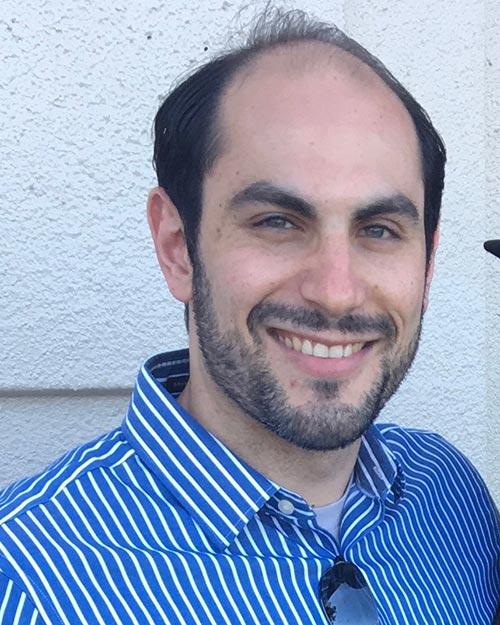
Doug Pet
Graduating Class: 2009
Current Position: Chief Resident, Neurology, University of California, San Francisco
What memorable Tufts Anthropology experience do you continue to take with you?
The mentorship and courses of Dr. Sarah Pinto sit atop my list of fond memories of Tufts Anthropology. I’ll never forget the “illness narratives” assignment for her medical anthropology class where I interviewed a friend (and best friend to this day) on his experience living with Type 1 diabetes. The project shattered many of my preconceptions and ultimately deepened my capacity for empathy. As a physician, I often think of Dr. Pinto compelling me to ask the question, “what’s at stake” for a person as their body transforms through illness? This question pulls me out of my assumptions and helps me appreciate the cultural, political, and spiritual identities of my patients. The greatest teachers put a high premium on curiosity and a higher one on humility. They teach you how to recognize, appreciate, and reach for what you don’t know. That is how I remember Dr. Pinto and other Tufts Anthro mentors.
What did you do right after graduation (and how did anthropology help to set you on that path)?
I worked for a non-profit organization in Berkeley, California as a writer, advocate, and organizer around bioethical issues related to genetic and reproductive technologies. I was a co-lead organizer for three international conferences on the implications of emerging biotechnologies (genetic engineering, reproductive selection, synthetic biology, surrogacy, others) for social, reproductive, racial, and environmental justice. My interest in the broader social justice implications of biomedicine stemmed directly from my anthropology background and particularly from courses in medical, nutritional, and evolutionary anthropology with Drs. Stephen Bailey and Sarah Pinto.
What are you doing now in terms of work, service, or other salient experiences? Does anthropology remain influential in what you do or how you do it?
I am currently Chief Resident in Neurology at the University of California, San Francisco and will be entering a fellowship in Neurohospitalist Medicine at UCSF in June 2022. My primary work is on teaching clinical and diagnostic reasoning in neurology, but I continue to work on social justice issues in biomedicine, most recently around problematic uses of racial categories in dementia research.
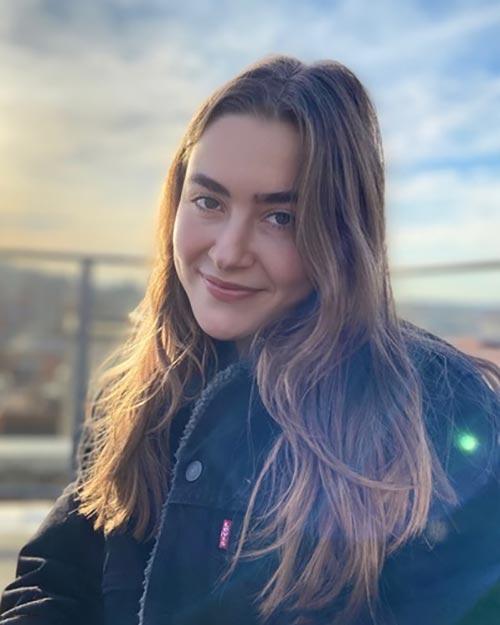
TJ (Tyler Jane) Robins
Graduating Class: 2020
Current Position: DVM Student, Cummings School of Veterinary Medicine
What memorable Tufts Anthropology experience do you continue to take with you?
It’s hard to pick just one memorable Tufts anthropology experience, but the mentorship I received while working toward my major remains extremely valuable to me. It’s unusual to really get to know your teachers in university-level classes. Class sizes tend to be large, and the didactic style of lecturing doesn’t facilitate the formation of personal relationships between students and professors. However, the Tufts Anthropology Department is uniquely small and close-knit; it also encourages participation in a way that I think is unique. When I look back on the anthropology classes I took in my time at Tufts, I can remember not only the classes/seminars, but also the individual conversations I had with my professors. Even now, two years after graduating, I feel as though I could email any one of my anthropology professors to ask a question or advice, and that they would remember me and be readily willing to help.
What did you do right after graduation (and how did anthropology help to set you on that path)?
After graduating from Tufts in May of 2020, I spent the summer working remotely with my undergraduate advisor, Zarin Machanda. Zarin directs long-term research at the Kibale Chimpanzee Project (KCP), which studies the behaviour of the wild Kanyawara chimpanzee community living in Kibale National Park, Uganda. My work with her was a continuation of my senior-year project, which involved helping to code/analyze some of the previously collected field data. I then started my program at Tufts’ Cummings School of Veterinary Medicine. Although veterinary medicine was always something I wanted to pursue, my double major in biology/anthropology has undoubtably lent unique perspective. For example, in studying primate behavior and its relation to the behavior of individuals in communities all over the world, I gained a unique perspective on ethology, evolution, and the development of societies and cultures that might not be explained by “traditional” science fields alone.
What are you doing now in terms of work, service, or other salient experiences? Does anthropology remain influential in what you do or how you do it?
My veterinary classes are very different from my anthropology ones in terms of style and content, yet my anthropology training continues to be helpful. Firstly, studying anthropology taught me how to perform a close-reading of scientific literature. I was taught to question everything that I was reading. I learned how to critically analyze a paper’s methodology, and evaluate it in terms of its ability to support a hypothesis or not. Moreover, some of my anthropology classes (in addition to my research within the Anthropology Department) taught me valuable skills on Excel. These skills have proven to be very useful as I help with ongoing clinical research at Cummings. Lastly, and perhaps most importantly, studying anthropology taught me the significance of connecting with people and meeting them where they are. This is a mentality that I will carry with me as a veterinarian and throughout life in general.
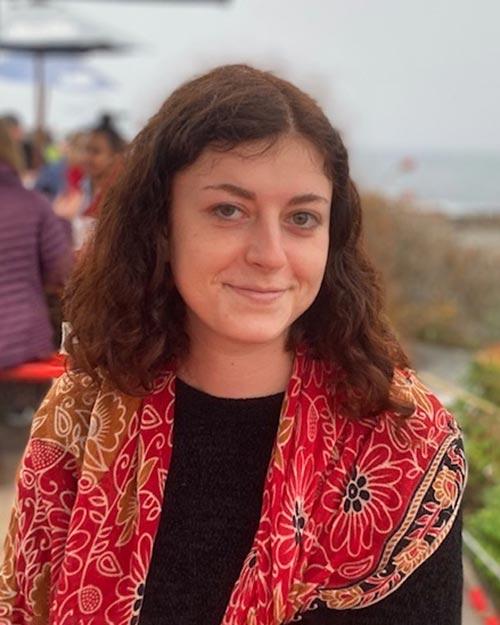
Isabel Rosenbaum
Graduating Class: 2021
Current Position: Refugee services, Cairo/MSc student in Global Migration, University College London
What memorable Tufts Anthropology experience do you continue to take with you?
Writing a senior thesis in anthropology, and the related events and processes, was the most formative and rewarding experience of my academic development. Through the thesis process, I learned what engaging in anthropology and thinking anthropologically felt like, and what such work truly entailed when outside of the classroom. My thesis work started while studying abroad in Lebanon and witnessing massive anti-sectarian protests. Without the initial intention to write a thesis but building from the advice of my professors and advisor at Tufts, I began jotting down observations and screenshotting things of interest. After leaving Lebanon, my collection of readings, notes, and media continued to grow. Throughout the thesis process, I enjoyed the academic independence and the experience of working closely with advisors to develop my writing and thinking, and engaging with other thesis writers as we researched, wrote, and edited. I experienced the deep joy, and satisfaction—not to disregard the frequent frustration—of pursuing and intensely engaging with a single idea over an extended period.
What did you do right after graduation (and how did anthropology help to set you on that path)?
A few weeks after graduation I moved to Egypt. Without a firm itinerary in mind, I came to Cairo with the goal of improving my Arabic and learning as much as I could about Egypt. I initially planned to stay for three months; a couple of weeks in I decided I would return for another six. Anthropology prepared me to observe and listen, critical skills for learning about and how to live in a new place. While in Cairo I got in contact with a refugee services organization, where I first volunteered with their English programming department and now assist with casework and UNHCR processes. I have been learning an incredible amount from observing and listening closely to those around me, and the empathy and critical awareness that anthropology centers have greatly supported and guided my work.
What are you doing now in terms of work, service, or other salient experiences? Does anthropology remain influential in what you do or how you do it?
Anthropology has taught me the value of learning outside of a classroom, through conversations and unplanned experiences, and has given me a framework through which to approach new experiences and learning outside of an institution. That said, next fall I will be starting an MSc in Global Migration at UCL, and am excited to return to academia and formally engage with anthropology and related disciplines to further my understanding, thinking, and interests in migration and refugee studies.
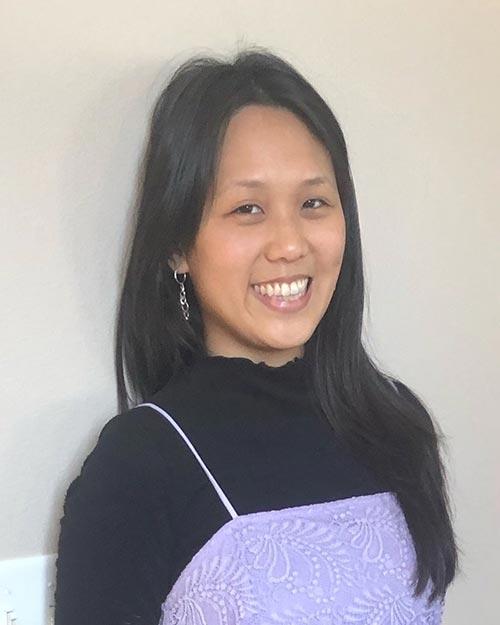
Shirley Wang
Graduating Class: 2017
Current Position: Freelance writer and radio producer
What memorable Tufts Anthropology experience do you continue to take with you?
As an undergrad student, I worked with Prof. Cathy Stanton to design an ethnographic research project and together, we applied for funding from the Tufts Summer Scholars Program. The project examined the relationship between race and “environmentalism,” and as part of the end product, I would produce a three-part podcast series. I was awarded a grant and the summer before my senior year, I rented an apartment near the Golden Gate Park in San Francisco and spent every day interviewing park-goers and environmentalists, trying to piece together a story. The whole time I would regularly call Prof. Stanton, and she guided my explorations of the area. This was truly one of my favorite experiences while at Tufts. I’ll never forget getting to visit Cathy in her office as well, chatting and thinking together about my observations.
What did you do right after graduation (and how did anthropology help to set you on that path)?
Right after graduation, I moved back to my Midwest hometown and began to intern at my state’s NPR station, where I helped to produce talk shows about local issues. This was also when I began to freelance as a writer and radio journalist. After a few months, I moved to Macau, then Hong Kong. Eventually, I made my way back to the U.S., then I traveled around South America and Western Europe for a year with my partner. I didn’t report from these places, but I did spend time writing for myself. Moving abroad, I was able to place myself in different environments and work on my ability to quickly gain a sense of what was going on. I loved being a local journalist because your job is to see what’s around you, make connections and write about it — which is what an anthropologist does through the practice of fieldwork.
What are you doing now in terms of work, service, or other salient experiences? Does anthropology remain influential in what you do or how you do it?
At the moment, I live in Melbourne and am still freelancing as a writer and radio producer. Instead of sticking only to journalism, I’m learning how to screenwrite and write fiction so that I can reach wider audiences. Cultural anthropology drew me in because the writing in the field is so impressive, able to describe any extremely complex situation in elegant, often poetic prose. To this day, I will read through Anthropological research if I am having trouble understanding a social phenomenon or power dynamic. Anthropologists are deep thinkers, and they daydream about what people do in their mundane, everyday lives. I used to describe some anthropology classes I took as “grounded philosophy” or “philosophy based on actual life.” I always will aspire to capture the beauty and patterns of the human experience like anthropology does. It has trained me to look at the world in such a unique way.